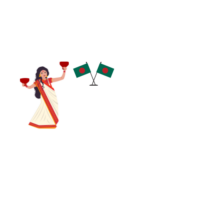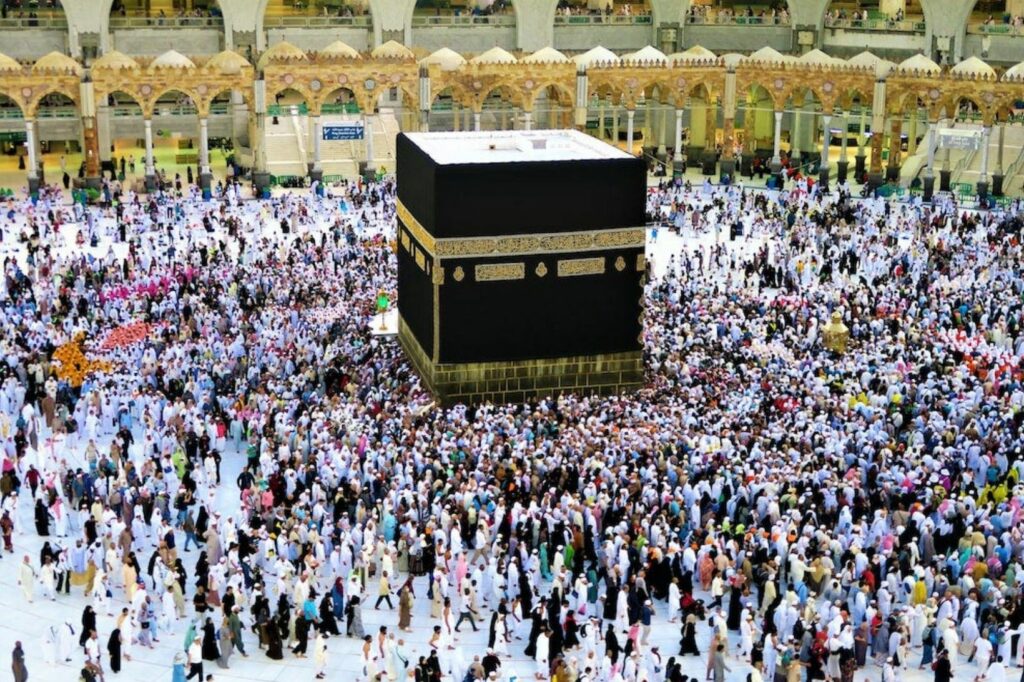Islamic festivals and celebrations offer a vibrant tapestry of cultural and religious significance that captivates millions around the globe. These events not only mark important religious milestones but also bring communities together in unity and joy. From the spiritual reflection of Ramadan to the jubilant festivities of Eid al-Fitr and Eid al-Adha, each celebration carries its own unique traditions and practices.
Ramadan, the ninth month of the Islamic lunar calendar, is a time of fasting, prayer, and reflection for Muslims. It culminates in Eid al-Fitr, a festival that signifies the end of fasting and is celebrated with feasting, charity, and communal prayers. Another major celebration, Eid al-Adha, commemorates the willingness of Ibrahim to sacrifice his son in obedience to God. This festival emphasizes the values of sacrifice, charity, and gratitude.
Islam Festivals and Celebrations
Islamic festivals hold great cultural and religious significance and unite communities worldwide. Two primary celebrations, Eid al-Fitr and Eid al-Adha, embody the shared values and rich traditions of the Muslim faith.
Eid al-Fitr
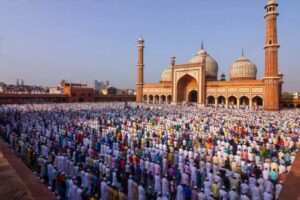 Eid al-Fitr marks the end of Ramadan, the holy month of fasting. Muslims around the world celebrate by gathering for communal prayers, enjoying festive meals, and giving to those in need. The day begins with a special prayer at the mosque, followed by visits to family and friends. Traditional dishes, such as sweet pastries and savory snacks, are served as part of the festivities. Acts of charity, known as Zakat al-Fitr, are emphasized to support less fortunate individuals.
Eid al-Fitr marks the end of Ramadan, the holy month of fasting. Muslims around the world celebrate by gathering for communal prayers, enjoying festive meals, and giving to those in need. The day begins with a special prayer at the mosque, followed by visits to family and friends. Traditional dishes, such as sweet pastries and savory snacks, are served as part of the festivities. Acts of charity, known as Zakat al-Fitr, are emphasized to support less fortunate individuals.
Eid al-Adha
Eid al-Adha, known as the “Festival of Sacrifice,” honors Ibrahim’s readiness to sacrifice his son in obedience to God. The festival occurs during the Hajj pilgrimage and involves the ritual sacrifice of livestock like sheep, goats, or cows. The meat is divided among family, friends, and those in need. Eid al-Adha fosters an environment of generosity and gratitude, with large gatherings for prayer, meal-sharing, and the distribution of gifts, highlighting the principles of compassion and humility.
Ramadan and Its Significance
Ramadan is a sacred month in Islam dedicated to fasting, prayer, and reflection. It holds immense spiritual significance for Muslims worldwide.
Fasting and Spiritual Growth
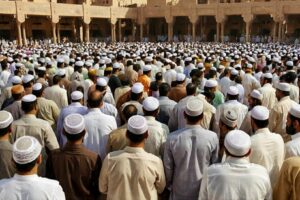 Fasting during Ramadan, known as Sawm, is one of the Five Pillars of Islam. From dawn to sunset, Muslims abstain from eating, drinking, and other physical needs. This practice fosters a deeper spiritual connection by encouraging self-discipline and empathy towards the less fortunate. Through fasting, Muslims aim to purify the soul and develop qualities like patience and compassion.
Fasting during Ramadan, known as Sawm, is one of the Five Pillars of Islam. From dawn to sunset, Muslims abstain from eating, drinking, and other physical needs. This practice fosters a deeper spiritual connection by encouraging self-discipline and empathy towards the less fortunate. Through fasting, Muslims aim to purify the soul and develop qualities like patience and compassion.
Traditions and Customs
Ramadan features various traditions and customs that enhance its religious and cultural meaning. Muslims engage in nightly prayers called Taraweeh, which are performed in congregation at mosques. Families and communities gather for Iftar, the meal that breaks the fast, often starting with dates and water, symbolizing unity and blessings. Another key custom is Suhoor, a pre-dawn meal that sustains individuals throughout the day. Giving charity, known as Zakat, plays a vital role in Ramadan, as it emphasizes generosity and community welfare.
Other Celebrated Events
Beyond the principal Islamic festivals, Muslims worldwide observe several other significant occasions. These events, rooted in religious history and tradition, highlight diverse aspects of Islamic faith and culture.
Mawlid al-Nabi
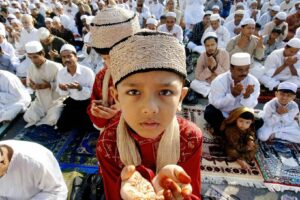 Mawlid al-Nabi observes the birth of the Prophet Muhammad, celebrated on the 12th day of Rabi’ al-Awwal, the third month of the Islamic calendar. This event centers on commemorating the prophet’s life, teachings, and contributions to Islam. While specific customs vary, many Muslims participate in gatherings for reciting poetry, sharing stories from the Prophet’s life, and expressing devotion through prayers. Communities often engage in charitable acts, distribute food, and decorate streets to honor this special occasion.
Mawlid al-Nabi observes the birth of the Prophet Muhammad, celebrated on the 12th day of Rabi’ al-Awwal, the third month of the Islamic calendar. This event centers on commemorating the prophet’s life, teachings, and contributions to Islam. While specific customs vary, many Muslims participate in gatherings for reciting poetry, sharing stories from the Prophet’s life, and expressing devotion through prayers. Communities often engage in charitable acts, distribute food, and decorate streets to honor this special occasion.
The Festival’s Spirit
Islamic festivals and celebrations offer a profound blend of spirituality, cultural richness, and communal harmony. They are not only occasions for personal reflection and worship but also opportunities to strengthen community bonds and express gratitude. These celebrations highlight the importance of compassion, charity, and shared experiences, fostering a sense of unity among Muslims worldwide. Embracing both religious significance and cultural diversity, Islamic festivals serve as a testament to the enduring spirit and values that define the Muslim world. Through these vibrant traditions, individuals and communities alike find a deeper connection to their faith and heritage.
